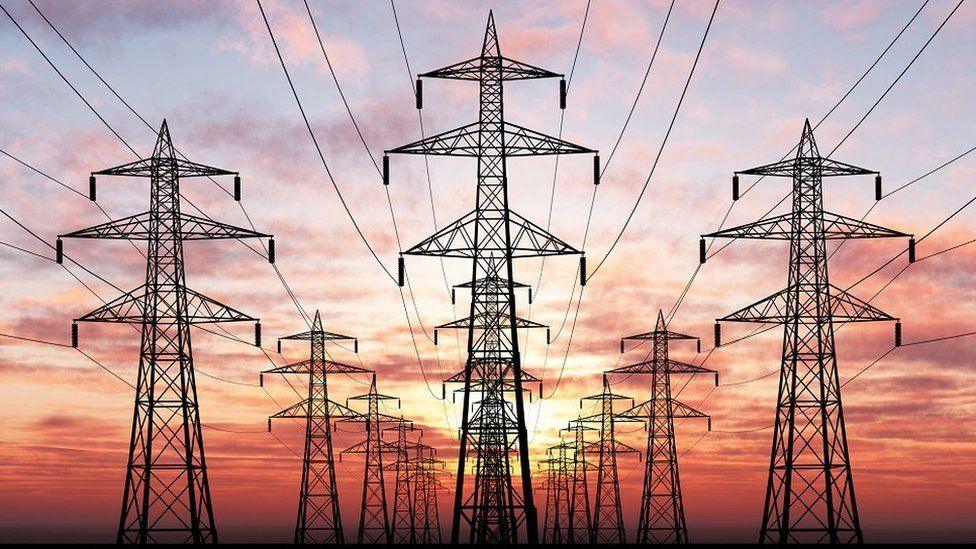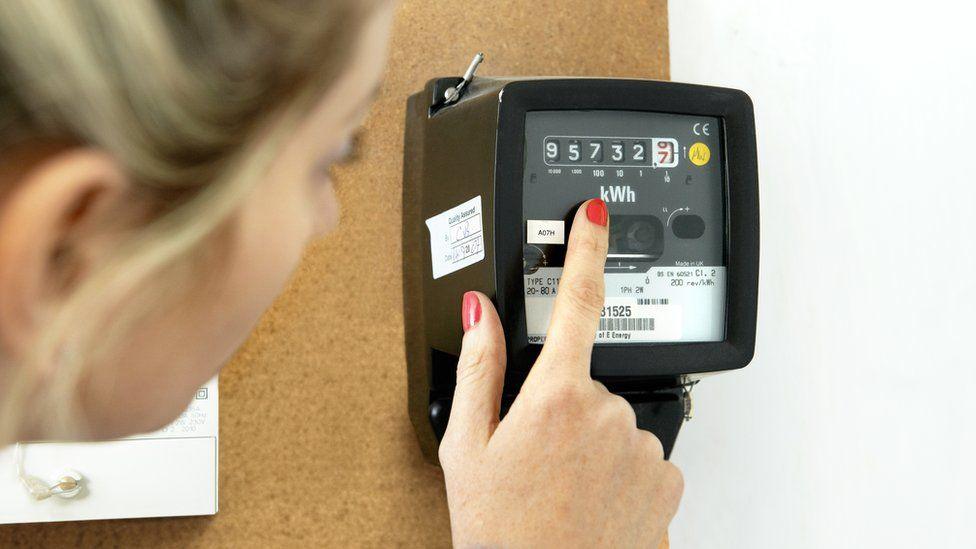Energy prices: Brace for more price hikes in the new year
- Published

Energy news has dominated the headlines in Great Britain over the last week, with householders facing a rise in bills or the prospect that suppliers face going out of business.
A massive jump in the price that suppliers are paying for gas has been blamed for the market turmoil.
Although it is not affecting customers in Northern Ireland, consumers here will nonetheless end up paying more.
The Northern Ireland gas market is very different from that in the rest of the UK.
Gas is the dominant household heating source in Britain with around 85% of homes connected to the grid.
So it is a large market and one in which competition rather than regulation is primarily intended to deliver the best prices for consumers.
There are about 40 competing gas suppliers in GB, though the current crisis means that number is steadily decreasing.
In Northern Ireland, gas is a much smaller part of the market, serving only about 20% of households.
That is because gas supply is a relatively recent innovation in Northern Ireland with the building of a network only starting in 1996 when Phoenix entered the market.
Households in the west have only recently been able to connect to the new Gas to the West pipeline, and large parts of Northern Ireland still don't have gas as an option.
In an immature market such as this, the companies who took the risk to be the first movers have been granted a monopoly to allow them time to develop a sustainable business.
SSE is the monopoly supplier in the Gas to the West area, while firmus has the monopoly in the so-called 'Ten Towns' area.
The two companies compete in Greater Belfast, Larne and East Down, the biggest and most mature market.
An arrangement such as this with monopolies and duopolies means the regulator plays the central role in controlling prices.

Northern Ireland has its own regulator, the Utility Regulator, led by chief executive John French.
The suppliers are effectively in constant negotiation with him and his staff, sharing details of their costs with prices being set by agreement at predictable points in the year.
This means the market is more stable and predictable than GB, where some challenger firms took big financial risks to win customers and now find they don't have a viable business.
But while customers in Northern Ireland aren't going to have the experience of waking up to find their supplier has gone bust and they're now paying a higher tariff to someone else, they are nonetheless still exposed to the same rise in wholesale prices.
In August, Mr French gave a warning of what was to come, saying that "unprecedented" increases in international wholesale prices meant households were likely to see bills increasing by more than £100 a year.
That's exactly what happened with SSE increasing prices by 21.8%, meaning a typical household customer will see an annual increase of £112.
For firmus, the increase was more than 35% or around £173 a year. That only applied to 'Ten Towns' households, with the firm yet to announce its unregulated Greater Belfast tariff.
The next tariff decision should be due in mid March, and with wholesale prices staying high, a further increase is likely for all customers.